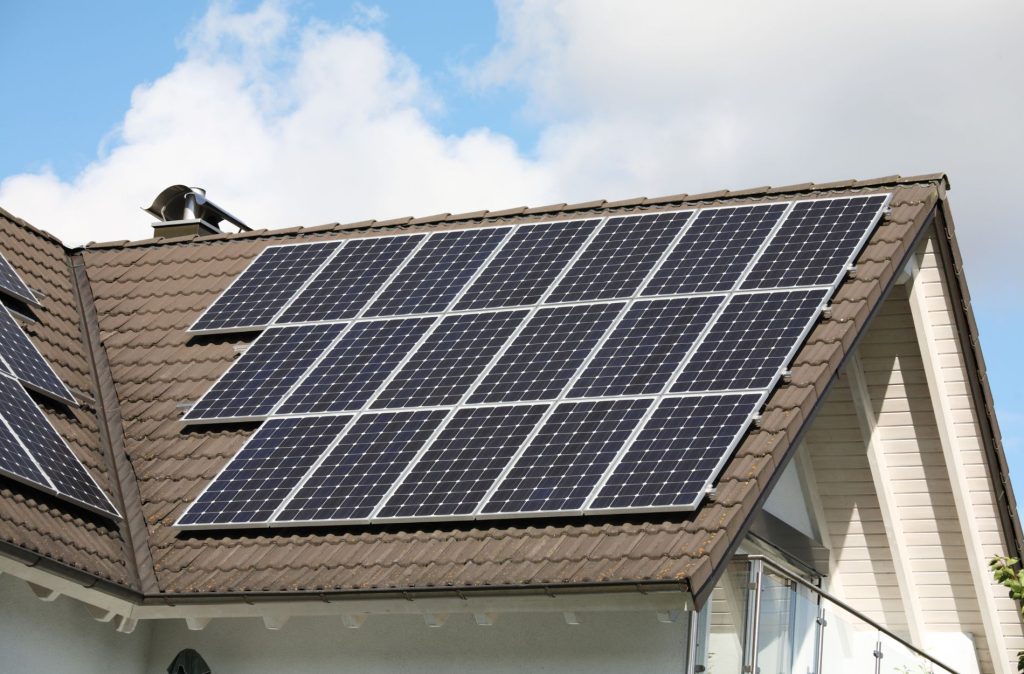
Solar energy is rapidly becoming a popular alternative to traditional energy sources, and for good reason. It not only helps homeowners save on electricity bills but also provides significant environmental benefits. Making the switch to solar power impacts more than just your wallet; it contributes to a healthier planet.
Switching to solar energy is a smart choice for both homeowners and the environment. Understanding these benefits can help you make informed decisions about energy use and its impact on our planet.
Reducing Greenhouse Gas Emissions
Solar energy plays a crucial role in reducing greenhouse gas emissions. When we use traditional energy sources like coal, oil, and natural gas, harmful gases are released into the atmosphere. These gases, mainly carbon dioxide (CO2), contribute to global warming and climate change. Solar panels, however, generate electricity without emitting any greenhouse gases.
By installing solar panels, we can significantly cut down on CO2 emissions. For every kilowatt-hour (kWh) of solar power produced, a corresponding amount of fossil fuel energy is offset. This reduction helps slow down the accumulation of greenhouse gases in the atmosphere. Over time, a single solar system can prevent tonnes of CO2 from entering the air.
Additionally, broader adoption of solar energy can lead to a substantial decrease in overall emissions. As more households and businesses switch to solar power, the demand for fossil fuels decreases. This shift helps reduce the carbon footprint of entire communities. Embracing solar energy is a powerful step toward a healthier planet and a sustainable future.
Decreasing Air Pollution
Air pollution is a serious issue that affects both the environment and human health. Conventional power plants burn fossil fuels to generate electricity, releasing pollutants like sulphur dioxide (SO2), nitrogen oxides (NOx), and particulate matter. These substances can cause respiratory problems, heart disease, and other health issues.
Solar panels produce clean energy by converting sunlight into electricity without any combustion process. This means they don’t emit harmful pollutants into the air. By using solar energy, we can reduce the amount of these dangerous pollutants in our atmosphere.
Cleaner air benefits everyone. Reducing air pollution can lead to fewer health problems, lower healthcare costs, and better quality of life. It also helps protect the environment by preventing acid rain and reducing the harmful effects of smog. Overall, switching to solar power is a good way to contribute to cleaner, healthier air in our communities.
Furthermore, decreasing air pollution has positive effects on wildlife and natural ecosystems. Many animals and plants are sensitive to changes in air quality, and reducing pollution can help preserve biodiversity. By investing in solar energy, we support both our health and the health of our planet.
Conserving Water Resources
Another major benefit of solar energy is its ability to conserve water resources. Traditional electricity generation methods, such as coal, natural gas, and nuclear power, use large amounts of water for cooling and processing. This high water usage puts pressure on local water supplies, particularly in regions already facing water scarcity.
Solar power, on the other hand, uses very little water to generate electricity. Photovoltaic (PV) solar panels convert sunlight directly into energy without requiring water for cooling or other processes. This minimal water usage helps conserve this precious resource, freeing it up for other essential needs like agriculture and drinking water.
Water conservation is increasingly crucial as climate change leads to more frequent droughts and water shortages. By choosing solar energy, we can reduce the stress on water supplies and help maintain a sustainable balance in our ecosystems. Investing in solar power is a proactive way to support water conservation efforts and ensure a reliable supply for future generations.
Enhancing Energy Independence and Sustainability
Solar energy enhances energy independence and sustainability. By generating electricity from the sun, we reduce our reliance on external sources of energy, such as fossil fuels. This shift helps improve energy security and protects against price fluctuations in the energy market.
With solar panels installed at home, we can produce our own electricity and become more self-sufficient. This local generation of power means less dependence on the centralised grid, which can be prone to outages and disruptions. Solar energy provides a reliable source of power, even in remote areas where traditional infrastructure might be lacking.
Sustainability is another key benefit of solar energy. Solar power is renewable, meaning it won’t run out as long as the sun shines. Unlike fossil fuels, which deplete finite resources, solar energy offers a long-term solution to our energy needs. By investing in solar, we contribute to a more sustainable future and help reduce the environmental impact of energy production.
Conclusion
Switching to solar energy offers numerous environmental benefits, from reducing greenhouse gas emissions and decreasing air pollution to conserving water resources and enhancing energy independence. By understanding these advantages, we can make informed decisions about our energy choices and their impact on the planet.
Embracing solar energy supports a healthier environment and contributes to long-term sustainability. It’s an effective way to mitigate climate change, improve air quality, save water, and ensure a more resilient energy system. Making the switch to solar power is a smart investment for both our homes and the environment.
If you’re ready to explore the environmental benefits of residential solar power system for your Macarthur home, reach out to Inspire Energy. Our team is dedicated to providing dependable solar and electrical services, helping you make the most of renewable energy solutions. Contact Inspire Energy today to get started on your solar journey and contribute to a greener future.
